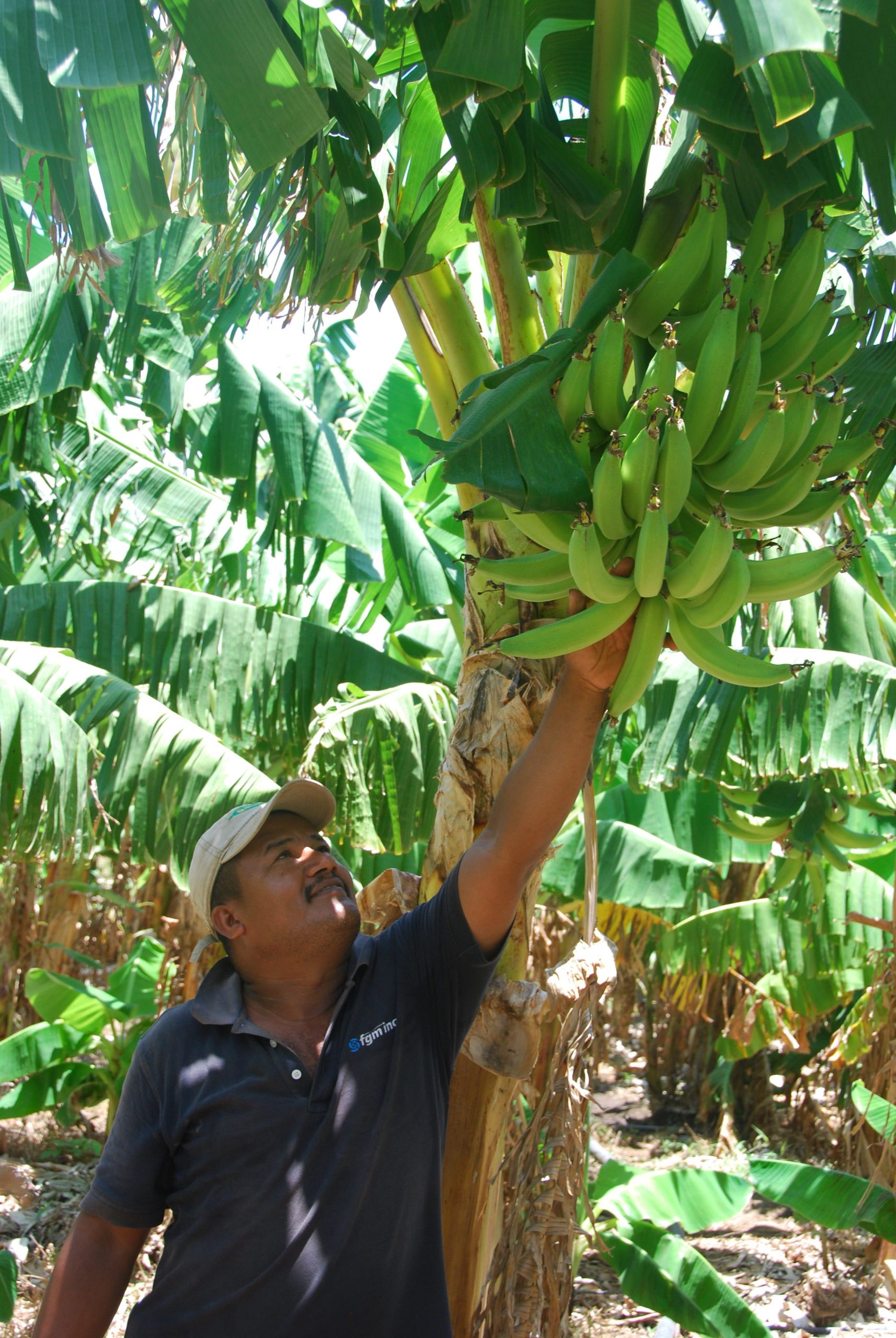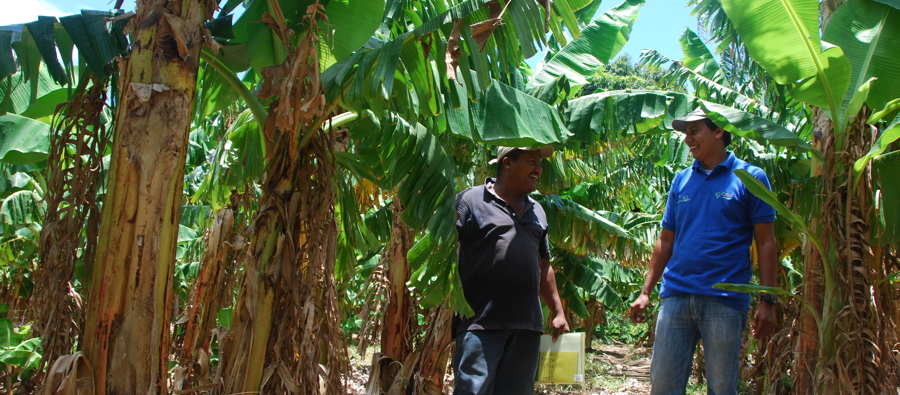Without the right knowledge or necessary tools, poor farmers in Nicaragua have been unable to undertake a second growing season during the dry season. However, with micro-irrigation equipment and techniques, these farmers have the potential of doubling their annual production and incomes. Until 2010, their needs were ignored by the commercial sector, who failed to see these farmers as a large enough market for their products. This is the market gap that can be filled by a social enterprise, which exists not simply to make a profit, but to ensure that community and societal objectives can be met. In Nicaragua, that gap is being met by iDEal Tecnologías.
Filling the market gap
In 2007, a team of experts at iDE, an international non-profit organization, analyzed the viability of bringing iDE’s market-based approach to address farmers facing chronic drought conditions in Central America’s “dry corridor” by innovating water-use alternatives, like the introduction of irrigation systems. Their evaluation determine that countries like Nicaragua and Honduras would continue to face water problems well into the future, and that irrigation technologies could be adapted to work there. The potential, in fact, was especially great when compared to the Asian countries where iDE had been previously promoting micro-irrigation, as producers in Asia generally owned very small planting areas.
“In Nicaragua, we were surprised by the fact that the producers owned a lot of land, and that was not the problem,” says Nadia Schaefli, CEO of of iDEal Tecnologías. “There was also enough water when compared to countries in Africa and Asia.”
iDE has worked for more than 34 years worldwide to create income opportunities for small-scale producers. Initially successful with low-cost, manually operated pumps, iDE’s experience taught it that, while the right technology is useful, the real success in addressing poverty was to identify and create sustainable markets that connected producers, equipment manufacturers, and produce buyers.

Plantain farmer Francisco Espinoza tends to his crop.
In 2010, to address Nicaragua’s non-existent equipment market, iDE established iDEal Tencologías as a separate business entity, created with the objective to reach poor farmers with low-cost irrigation systems. The business plan for this new social enterprise was to make enough money to break-even and create a supply chain that provided farmers with micro-irrigation systems.
The new enterprise realized quickly that just bridging the market gap with the right equipment was not yielding the desired results. Even though the technology was sized correctly and kept simple, most Nicaraguan farmers lacked the necessary dry-season crop management knowledge. For this reason, iDEal established a technical assistance component that has proved to be of crucial importance.
Design to context
iDEal Tecnologías employs a small team of twelve, some of whom are technical agronomists responsible for providing crop management and equipment assistance. The team currently serves approximately 10,000 farmers throughout Nicaragua. Technical support is delivered in two ways: by engaging groups of farmers through cooperatives, associations, and other community initiatives or by visiting and working with farmers individually.
When a farmer expresses an interest in an irrigation system, he or she is visited by an iDEal technician who conducts an assessment of the farmer’s plot to evaluate the availability of water.
iDEal approaches sales ethically. Nadia says, “We prefer to tell the farmer—and here lies in part the social responsibility of the enterprise—that there are no sufficient water sources and that therefore we would not recommend buying an irrigation system since it wouldn’t solve the problem.”
If there is a sufficient water supply, the iDEal technician designs an irrigation system based on the farmer’s specific needs and land conditions, defining the necessary equipment components and recommending the appropriate crops for which it should be used, providing crop management advice if the farmer is unused to growing that crop.
Manufacturing and Distribution
The original micro-irrigation equipment was based on a similar product in India. The Indian manufacturer came to Nicaragua to evaluate the differences in climate and land-use, and created a specific system for Nicaraguan use. Later, iDEal sent a Nicaraguan manufacturer for training to India, in order to learn how to manufacture the irrigation equipment locally. Today, the PVC and hoses are produced in Nicaragua, while the microtubes remain sourced abroad. A recently passed law that exempts irrigation system equipment from custom duties has helped to lower the price of the imported components as well as also speed customs inspections, and this is reducing the waiting time between system design and delivery. By increasing the amount of system components manufactured locally, iDEal has established a more efficient quality control process, and increased revenue for this link of the value chain for Nicaragua.
The smallest system, which covers 20 square metres, costs $15 and is normally used for gardens and private consumption. Larger systems cost between $800 and $1,200. Most farmers pay for the systems through their local cooperative or association that helps with a part of the costs. Some farmers are able to pay the entire amount themselves, while others turn to a microfinance institution to obtain a low-cost loan.
The irrigation systems are not subject to subsidies. The farmer pays a fair price for the equipment, while the technical assistance is subsidized. Technical assistance services are extremely limited in Nicaragua. Even if they are aware that such assistance can be had, many farmers are far from the universities and government offices that typically supply such knowledge. To continue to offer this valuable service is a big challenge for iDEal since it requires trained staff.
Large irrigation system distributors, like AMANCO, Agrológico, and DISAGRO who focus on large-scale farms, are not competitors to iDEal Tecnologías. Occasionally these distributors even act like partners, i.e. when they refer small-scale farmers in their territories to iDEal.
Creating Social Value
According to a global study conducted by iDE, a farmer’s income can increase 30 – 90% by using irrigation systems. Nevertheless, what grabs the most attention is the change it brings to the lives of the people, most of all in the lives of women. Most of the labor spent on a Nicaraguan farm is done by irrigating crops by hand: gathering water from a well, stream, or lake, and walking it to the farm where it is poured into rows. This work disproportionately falls to women and girls. Not only does a micro-irrigation systems reduce this labor, it also helps conserve up to 70% of a farm’s water-use.
A path to self-sufficiency
iDEal’s start-up capital was provided through donor grants from the Swiss Agency for Development and Cooperation as well as other organizations such as the Renewable Energy and Energy Efficiency Partnership (REEEP). iDEal continues to incur fixed costs, like the technical assistance services, which are dependent on ongoing grants.
“The main challenge for the future will be to achieve self-sustainability,” says Nadia, iDEal’s CEO, who estimates it will happen in 2017. “A social enterprise must generate income while at the same time it needs to use this income for a social purpose. Every time we encounter a farm that is not suitable for our irrigation systems and advise the farmer to not buy one delays the moment the enterprise can break-even. However, it is also a lot healthier from a societal perspective.”



